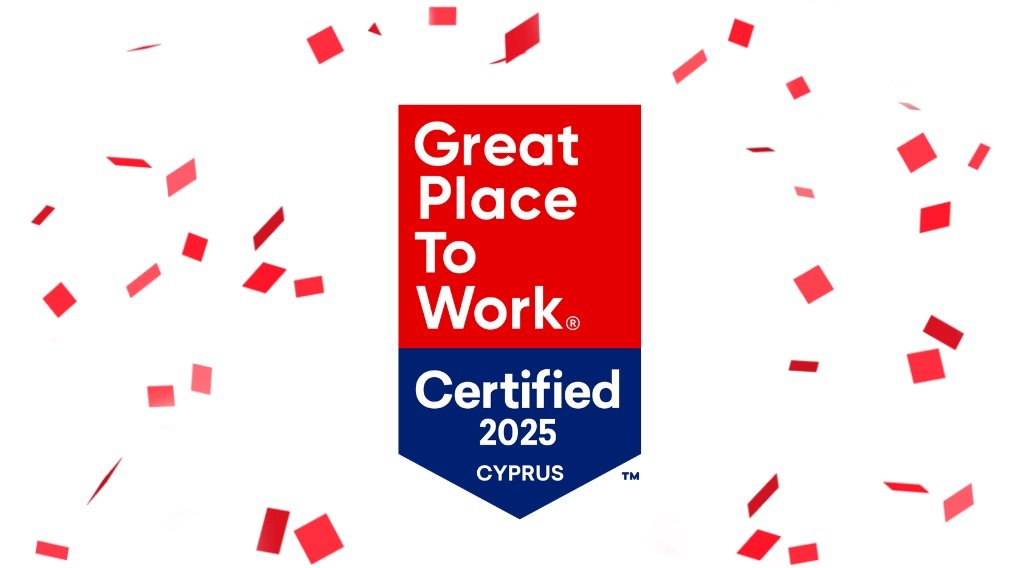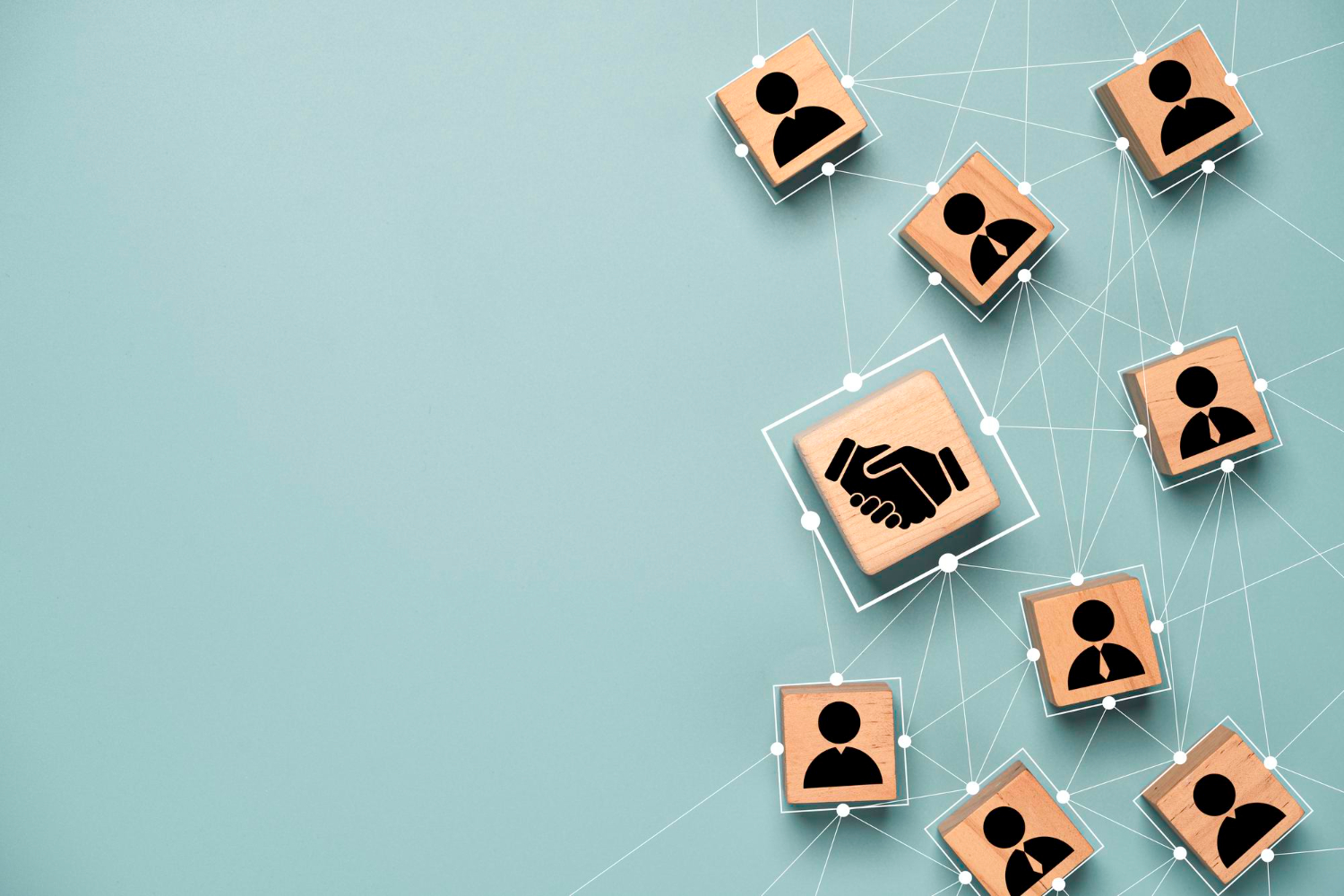Cypriot companies are redefining workplace culture by putting employee empowerment and trust at the heart of their business strategies. Instead of relying on old-fashioned, rigid management, forward-thinking organisations are cultivating environments where people have the freedom to make decisions, contribute ideas, and take meaningful ownership of their work. This shift is sparking innovation, strengthening teams, and building the foundation for long-term business growth.
Empowerment means employees are trusted to act, supported in their development, and encouraged to grow professionally. The results are precise: higher job satisfaction, improved retention, and increased productivity. In fact, several leading Cypriot companies—such as those awarded “Best Workplaces™” distinction—attribute their business growth to initiatives that prioritize employee empowerment and trust.
By investing in supportive cultures and giving people the tools and autonomy they need, Cyprus’s best employers are creating workplaces where individuals flourish and organizations thrive. Employee empowerment isn’t just a trend—it’s a catalyst for a more harmonious, successful workplace across the island.
What is employee empowerment in the workplace?
Employee empowerment in the workplace is the process of giving employees the authority, autonomy, and resources to make decisions and act independently in their roles. This approach shifts control from traditional, top-down management, allowing employees to take ownership of their work, contribute ideas, and solve problems without excessive oversight.
Essential elements of employee empowerment include:
- Decision-making authority: Employees are trusted to make choices and implement solutions relevant to their responsibilities.
- Access to resources: People have the tools, information, and support needed to succeed and make informed decisions.
- Accountability and ownership: Empowered employees are held to higher standards and are expected to take responsibility for outcomes.
- Reduced micromanagement: Management relinquishes some control, fostering independence as employees align with company goals.
- Opportunities for growth: Employees are encouraged to develop their skills, take on expanded responsibilities, and participate in workplace improvements.
The goal of empowerment is to build confidence, support professional development, and create a culture where employees feel valued and connected to organisational success. Research shows that when employees feel empowered, levels of engagement, productivity, and job satisfaction increase significantly.
How does employee empowerment work?
Employee empowerment works by shifting authority, autonomy, and responsibility from traditional management structures to individual employees within their roles.
Here’s how the process typically unfolds:
- Delegation of decision-making: Managers grant employees the power to make choices relevant to their work—such as problem-solving, process improvements, or customer interactions—without requiring approval for every action.
- Access to resources: Empowered employees are provided with the information, tools, and training needed to make informed decisions and act independently. This may include skill development programs, open communication channels, and technology support.
- Trust and accountability: Leadership fosters an environment of trust, supporting employees to take initiative while holding them accountable for outcomes. Employees are encouraged to take ownership of both their successes and areas for improvement.
- Reduced micromanagement: Managers step back from closely controlling every aspect of workflow, focusing instead on coaching, mentoring, and setting clear expectations. Employees are free to approach tasks creatively and efficiently.
- Inclusive participation: Employees are invited to contribute ideas and feedback on company policies, products, or strategies. Team members are often included in goal-setting and problem-solving, promoting a sense of ownership and belonging.
- Recognition and support: Efforts and achievements are acknowledged, and employees are supported through challenges. This positive feedback cycle reinforces motivation and commitment.
- Continuous improvement: Empowerment is not a one-time initiative; it evolves with ongoing dialogue, skill-building, and adaptation. Organizations continually review and refine empowerment strategies in response to employee feedback and business needs.
Overall, employee empowerment works best when leadership sets clear boundaries, ensures adequate support, and maintains transparency—creating a workplace where individuals feel trusted to act, inspired to grow, and motivated to help the organization thrive. The result is greater employee engagement, innovation, and sustained business success.
What are the benefits of employee empowerment?
Empowering employees delivers significant advantages for both individuals and organizations, cultivating a workplace culture that is positive, dynamic, and forward-thinking.
Key benefits include:
- Improved job satisfaction: Empowered employees feel a deep sense of connection and fulfillment in their roles. This engagement leads to proactive contributions and a drive to excel.
- Higher productivity: When individuals take ownership of their work, they make stronger decisions and consistently work toward achieving organizational goals—boosting success at every level.
- Enhanced employee retention: Organizations that prioritize empowerment are more likely to retain top talent. Employees value environments that support personal growth, autonomy, and continuous development.
- Increased creativity and innovation: Empowered teams feel confident to share new ideas, experiment, and take smart risks, resulting in creative solutions that advance business objectives.
For Cypriot workplaces in particular, employee empowerment strengthens resilience, adaptability, and job satisfaction—laying the groundwork for sustained success and a thriving organizational culture.
How is employee empowerment measured in Cyprus?
Employee empowerment in Cypriot workplaces is primarily measured through structured employee engagement surveys and ongoing feedback mechanisms, mirroring global best practices but tailored to the local work culture.
Key Measurement Methods
- Engagement Surveys
- Companies in Cyprus commonly use comprehensive annual or biannual surveys, such as the Great Place to Work® Trust Index™ Survey, to assess how empowered employees feel. These surveys include quantitative questions (like Likert scales ranging from “Strongly Disagree” to “Strongly Agree”) and qualitative, open-ended questions that allow employees to elaborate on their experiences with autonomy, decision-making authority, and support within their roles.
- Survey statements often focus on:
- Access to resources and tools
- Trust in management and leadership
- Opportunities to take initiative and influence decision-making
- Recognition and appreciation for contributions
- Career development and advancement possibilities
- Pulse Surveys
Responses to such questions, aggregated into an empowerment or engagement index, guide action planning and improvements—making the process both systematic and impactful for long-term business success.
How can you improve employee empowerment in Cyprus?
Improving employee empowerment in Cyprus starts with building a company culture rooted in trust, transparency, and best practices. Open communication about expectations, paired with access to the right resources and tools, creates a strong foundation for individuals to succeed and take ownership of their work.
Investing in mentorship programs and providing real opportunities for professional development empowers employees to grow confidently within their roles. Recognising achievements and acting on employee feedback are crucial steps—regular celebrations of success and genuine responsiveness to suggestions help boost morale and foster more substantial alignment with organisational goals.
Encouraging innovation, flexibility, and a collaborative spirit further supports empowerment, allowing employees to share ideas and take initiative. By embracing these strategies, Cypriot workplaces can cultivate an environment where teams feel valued, responsible, and motivated to contribute to the company’s ongoing success.
Which components define employee empowerment in Cyprus?
Key elements that promote empowerment in Cyprus workplaces are autonomy, access to resources, and recognition systems. Autonomy allows employees to make decisions, which helps them feel good about their work and encourages job satisfaction. It also helps with employee retention.
Access to resources, like mentorship programs and professional development tools, improves employee experience and boosts teamwork. It celebrates achievements and encourages innovative ideas that help reach organisational goals. By including these parts, Cyprus workplaces can create successful and lasting teams.
1. Autonomy and Decision-Making Freedom
Autonomy in the workplace allows employees to make their own decisions. This freedom helps spark creativity so that choices align with company goals. When workers feel trusted to handle their tasks, it boosts morale and leads to higher productivity.
Encouraging a sense of ownership among employees builds confidence in their abilities. Organisations in Cyprus create strong teams where people take pride in their work and can innovate easily. Autonomy reduces micromanagement and gives the flexibility to reach personal and business goals.
With actionable strategies and a supportive company culture, companies in Cyprus can transform their workforce. By taking calculated risks at the organisational level, they can make impactful decisions that sustainably strengthen their business. Autonomy is a powerful tool that shapes empowered workplaces.
2. Access to Information and Resources
Access to information and resources is key to strong workplaces. Employers in Cyprus offer many resources, such as training programs and tools. This support helps employees make good decisions. Clear organisational goals let employees feel confident about pursuing development opportunities.
By providing mentorship programs and important resources, employees know they are valued. This leads to higher job satisfaction and more productivity. This positive cycle helps bring innovative solutions that match company missions, improving employee experience.
Organisations in Cyprus that focus on giving access to resources enjoy better teamwork. Employees create actionable strategies, boosting team morale and helping the organisation reach its goals. Companies do better when empowered individuals push unique solutions forward.
3. Supportive Work Culture and Open Communication
Cultivating a supportive work culture depends on open communication. This helps create a space where employees feel valued and heard. Honest feedback channels let staff share their thoughts. This openness can lead to innovative ideas that boost job satisfaction and employee engagement. This method builds better relationships among team members.
It also connects personal goals with organisational goals. Companies can improve employee retention and raise overall workplace morale by focusing on clear communication and a culture of empowerment. This drives success for everyone.
4. Recognition and Reward Systems
Recognition and reward systems are important for boosting employee engagement and keeping employees. When organisations notice achievements and contributions, they create a culture of empowerment. This motivates employees to do their best. Clear communication about these systems builds trust.
It helps team members know what they need to do to earn rewards. Giving personal recognition makes employees feel more connected to their work, leading to higher job satisfaction. It also aligns their efforts with company goals, which helps achieve overall organisational success.
5. Professional Development Opportunities
Investing in professional development opportunities is crucial for improving employee satisfaction and keeping staff members. These programs create a culture of empowerment, helping people learn new skills and take control of their careers.
Mentorship programs and training workshops are great ways to support growth and attract innovative ideas, which leads to higher productivity. When organisations focus on these development opportunities, they align with company goals and build a motivated team that feels valued and engaged in their work.
6. Work-Life Balance and Flexibility
Creating a workplace that values work-life balance and flexibility helps boost employee satisfaction and engagement. When companies support flexible work arrangements, employees can better manage their personal and work lives, leading to greater ownership over their work.
As a result, job satisfaction increases, and productivity and retention follow. When businesses support individual needs and give options for remote work or adjustable hours, they build a culture where employees feel valued, which motivates them to deliver their best work.
7. Employee Voice and Participation
Encouraging employees to share their thoughts and participate creates a culture where they feel important and valued. This open communication helps boost engagement and job satisfaction. When organisations ask for employee feedback and include them in decision-making, it gives workers a sense of ownership over their tasks, improving team morale.
Working together in this way results in innovative solutions and impactful decisions. It helps align individual goals with organisational goals, ultimately contributing to higher productivity and a positive workplace culture.
What are the stages of employee empowerment?
Employee empowerment generally comprises multiple stages: awareness, wherein employees grasp their responsibilities; involvement, promoting engagement in decision-making processes; development, aimed at skill improvement; and autonomy, providing the liberty to make decisions. Together, these stages nurture a workplace culture of collaboration and trust.
1. Informing
Giving employees clear and valuable information is key to empowerment. This first step helps create openness in the workplace, allowing team members to feel appreciated and well-informed. Good communication helps share knowledge and ensures everyone knows the organisation’s goals.
This connection improves employee engagement. When companies explain expectations and missions clearly, they build trust. This lets employees take ownership of their work. This active approach increases job satisfaction and sets the stage for a culture of empowerment.
2. Enabling
Enabling employees means creating an environment where they can take charge of their work. This involves giving them the right tools, training programs, and resources to do their jobs well. Employees feel more engaged when companies promote open communication and encourage constructive feedback.
This leads to higher job satisfaction and boosts productivity. Organisations can keep employees longer when workers feel a sense of ownership in their tasks. This helps ensure that everyone is working toward the same company goals, which can improve customer service and lead to greater organisational success.
3. Involving
Involvement builds a culture of empowerment, which makes employees more engaged and satisfied. When team members participate in decision-making, organisations can use different viewpoints to create innovative solutions. This teamwork helps employees feel a sense of ownership over their work and encourages accountability.
When employees know they are valued and heard, they are likely to go the extra mile. This helps improve customer satisfaction and leads to organisational success. Open dialogue is key to unlocking everyone’s potential.
4. Entrusting
A culture that trusts employees helps them feel more in control of their work, boosting job satisfaction and engagement. When team members are given responsibilities, they are encouraged to think creatively and be accountable. They have the power to make important decisions that support the organisation’s goals.
This trust leads to honest feedback and clear communication, which is essential for professional development and team success. When employees feel respected and valued, morale improves. This increase in morale can lead to higher productivity and better retention.
5. Accountability
Accountability is important for employee empowerment. It helps build a culture where people feel responsible for their work. Employees are more engaged and satisfied when they know what they need to do and feel accountable for their actions.
Letting teams take the lead encourages them to find creative solutions that align with organisational goals. Setting clear expectations and giving honest feedback also builds trust. This trust encourages workers to be proactive, which helps boost employee productivity and morale at work.
What are the employee empowerment techniques used in Cyprus?
Employee empowerment techniques in Cyprus include participative decision-making, which means employees can help make choices, and delegating authority, which gives workers more freedom.
Skills development happens through focused training. Open communication plays a key role in allowing honest feedback. Lastly, recognition programs encourage and reward positive actions from employees.
1. Participative Decision-Making
Involving employees in decision-making creates a feeling of ownership and togetherness at work. This teamwork improves job satisfaction because team members share their unique thoughts and creative ideas that influence important choices. Good communication is key here. It makes sure everyone’s voice is heard and appreciated.
By adopting this approach, organisations in Cyprus improve employee retention and commitment. It also helps align decisions with the company’s goals, boosting overall productivity and performance.
2. Delegation of Authority
Delegation of authority is important for creating a workplace where employees feel they own their tasks. When team members get the chance to make decisions, it encourages new ideas and makes them happier with their jobs.
This approach helps people feel more engaged and improves their spirits. It also connects their work to the company’s goals. When employees can make important choices, they provide better customer service and work more productively. This, in turn, helps keep employees longer and creates a positive company culture.
3. Skills Development and Training
Focusing on skill development and training can significantly improve employee engagement and satisfaction. Companies providing tailored training programs and mentorship create a culture of empowerment. In this environment, employees feel valued and interested in their professional growth.
Investing in new skills helps employees and leads to higher productivity and innovation. Companies that emphasise development create a setting encouraging impactful decisions and better organisational performance. This leads to improved customer service and stronger employee retention.
4. Open Communication and Feedback
Open communication is key to a healthy workplace culture. It helps employees feel valued and understood. This open dialogue boosts employee engagement and satisfaction, improving retention and morale. Regular feedback helps communication flow and allows team members to share innovative ideas.
Businesses can build a culture of empowerment by encouraging honest discussions and helpful feedback. This culture supports organisational success and professional growth, helping everyone in the workplace.
5. Recognition and Rewards
A culture that celebrates achievements can really improve employee engagement and satisfaction. When companies implement recognition and rewards systems, they give staff a sense of ownership. This motivation pushes them to work at higher productivity levels. It boosts team morale and helps keep employees longer.
By having clear criteria for recognition, organisations can create an environment where innovative ideas can grow. This can lead to organisational success and help meet company goals. Employees who feel empowered are likely to go the extra mile in customer service and improve the overall experience.
What is the difference between employee empowerment and employee engagement?
Employee empowerment and employee engagement are both crucial for a thriving workplace, but they refer to different concepts and play distinct roles:
Employee Empowerment
- Definition: Empowerment means giving employees the authority, autonomy, and resources to make decisions, take initiative, and assume ownership of their work. It focuses on trust, access to tools, and a supportive environment where individuals feel capable of acting independently.
- Key Focus: Power, autonomy, and responsibility. Empowerment is about letting employees shape how work gets done, solve problems, and contribute new ideas.
- Purpose & Outcomes: Builds confidence, encourages professional growth, reduces micromanagement, and fosters innovation. Empowered employees are self-directed and proactive.
Employee Engagement
- Definition: Engagement refers to how emotionally committed, enthusiastic, and connected employees feel towards their work and organisation. It is measured by their motivation, satisfaction, and willingness to go above and beyond.
- Key Focus: Emotional connection, motivation, and commitment. Engagement is the result of feeling valued, inspired, and aligned with company goals.
- Purpose & Outcomes: Drives productivity, retention, morale, and overall performance. Engaged employees are passionate, loyal, and willing to contribute extra effort.
When employees feel empowered, they are more likely to be engaged. However, an employee can be employed (enthusiastic and committed) without feeling truly empowered, or to be empowered (autonomous) but not deeply engaged if other motivational needs aren’t met. The most successful workplaces foster both.








